The Wizard of Weird: The Worst to Best of David Lynch
by Jason Koenigsberg David Lynch is one of the greatest visionary artists of the past forty years. His strange and always thought provoking films have etched their way into our […]
Cinema Forum
by Jason Koenigsberg David Lynch is one of the greatest visionary artists of the past forty years. His strange and always thought provoking films have etched their way into our […]
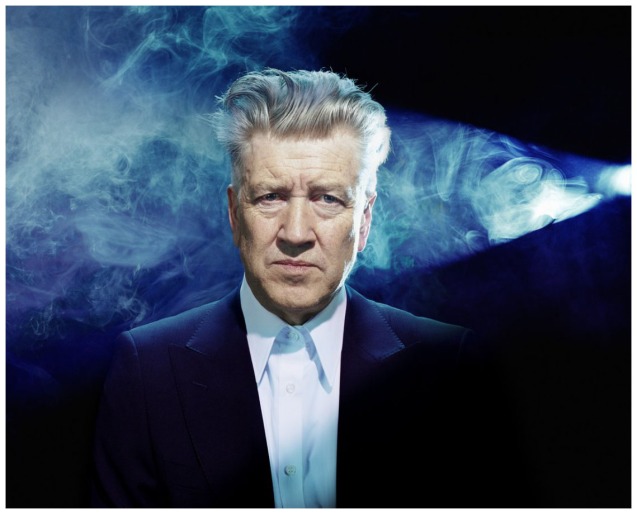
David Lynch is one of the greatest visionary artists of the past forty years. His strange and always thought provoking films have etched their way into our psyche and have managed to be provocative long after they premiered and stand the test of time. He also conquered the small screen as well forever changing the medium with Twin Peaks which pushed the limits of the television drama and influenced so many subsequent programs. This year Lynch makes his triumphant return to Twin Peaks, his most celebrated achievement with new episodes on Showtime. This year also celebrates the fortieth anniversary of his groundbreaking independent debut feature film Eraserhead (1977). There is no better time than right now to reflect on the career of David Lynch and his ten theatrically released movies. Here are Pan and Slam’s definitive rankings of all of David Lynch’s films from worst to first.
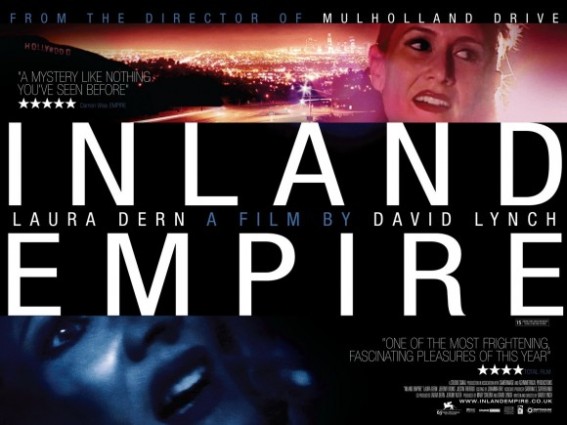
The final theatrical film directed by David Lynch thus far is the only one of his films I would legitimately say that I disliked. Inland Empire certainly throws conventional filmmaking and storytelling tropes out the window, even more so than any other Lynch film and that is saying a heck of a lot. The plot is nearly incomprehensible, about an actress being plagued by strange incidents after she signs on to a film cursed with deadly production problems. It is over three hours and the audience is just basically following this actress, played brilliantly by Lynch regular Laura Dern in her bravest performance, as a woman in trouble struggling to combat demons that may be real, may only exist in the movie she is filming, or may exist only in her mind. The Lynchian dreams motif is strong and so is the bizarre behavior, sounds, and visuals he has become synonymous with. Whenever people complain about Lynch movies being nothing but weird just for the sake of being weird, Inland Empire is the only one that they might legitimately be right about. He allegedly wrote the script each night before filming and handed it to the actors, so none of them knew what the movie was about. In the eleven years since Inland Empire was released to largely apathetic reviews and audience reactions David Lynch has done everything but make movies. He has returned to painting, directing short films, writing books and poetry, returned to television, voice acting, making music albums and touring, created his own coffee brand, wrote books about meditation and promoting meditation in schools and businesses. He has extended the David Lynch brand to other mediums outside of cinema and has found moderate success in those arenas. In retrospect after watching Inland Empire it is amazing that Lynch managed to find as much success as he has in the movie industry. I saw Inland Empire during its original theatrical run at the IFC Center and have given it three chances on DVD to impress me and it never has. But Inland Empire is not without its merits, some of its scenes are memorable because of the way David Lynch utilizes the soundtrack, especially songs by Beck and Nina Simone, and as previously mentioned an outstanding performance from Laura Dern.
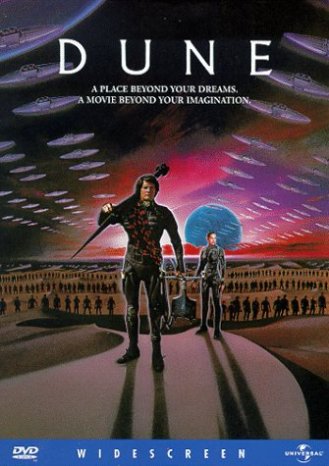
David Lynch’s sole endeavor into the world of blockbuster entertainment, and it bombed big time at the box office. His cinematic adaptation of Frank Herbert’s beloved sci-fi novel Dune made fans of the book angry and upset that the two and a half hour film left so much out from the original source, and people who did not read the book were left confused. But honestly, this is exactly what people should have expected from a big budget Lynch movie. It is beautiful in its ugliness and ugly in a beautiful way. He created a world the likes of which moviegoers had never seen and it was not one that many would want to live in, but it is original. After the critical and commercial success of The Elephant Man (1980) Lynch earned his first of three Best Director Academy Award nominations. He was a hot commodity and was getting offers all over the place including George Lucas wanting him to direct Return of the Jedi (1983). He turned Lucas down to pick up where Jodorowsky had failed and would accept Dino De Laurenttis’ offer to helm the cinematic adaptation of Dune, a book many people thought was unfilmable. All things considered, he took a then outlandishly huge budget of $44 million and made a sci-fi spectacle the likes of which had never been seen before or since. It was not warm and welcoming like the universe created in Star Wars (1977), nor was it cold and realistic like Kubrick’s 2001: A Space Odyssey (1968). Watching it today it feels very much in line with his independent work, like a painting with surreal and grotesque images. It was a monumental failure both with critics and audiences and David Lynch was quoted saying the response to Dune “felt like death”. Nobody knew exactly how to feel when they walked out of the theater even though it was like nothing they had ever seen. It did introduce the world to many actors that would become part of David Lynch’s acting troupe such as Jurgen Prochnow, Everett McGill, and the acting debut of Kyle MacLachlan who would become to Lynch what De Niro was to Scoresese. Plus, it started Lynch’s tradition of casting a musician in all of his movies with Sting having a major role as a villain in Dune. There was a silver lining, after it bombed at the box office. David Lynch went to Dino De Laurentiis and cut a deal to make a low budget film. Lynch himself had to give up a huge part of his salary in order to have more control and final cut. That movie ended up being Blue Velvet (1986). If you do not know why this would end up being such a big deal just keep reading.
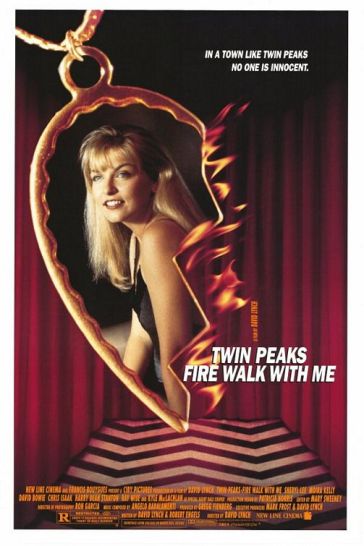
David Lynch’s foray into the realm of television ended up being one of the most successful and experimental endeavors in mainstream network programming and the biggest mainstream victory of his career with a long lasting impact. ABC let him make Twin Peaks and it wound up being a cultural phenomenon and one of the most influential shows in the history of television. Twin Peaks premiered in the summer of 1990 to high ratings, critical praise and won Emmys and Golden Globes. Everyone across the country wanted to know who killed Laura Palmer. Looking back on Twin Peaks, it is amazing with what it got away with twenty-seven years ago. By today’s standards of television it would be just another run of the mill TV drama, but Lynch’s murder-mystery series was ahead of its time. David Lynch found himself at the top of the world, one of the unlikeliest and most unconventional filmmakers had found mainstream success so easily and would grace the cover of Time magazine. But when you are at the top there is nowhere to go but down. The second season of Twin Peaks was met with much lower ratings and despite critics praising the first episodes, they were very harsh on the second season. It was cancelled in 1991 and left several plot holes unexplained. Lynch announced his next film would be a Twin Peaks movie. Fans thought it would resolve everything they wanted to know when the series ended but instead it was a prequel about the last week of Laura Palmer’s life and introduced new FBI agents investigating a murder before Laura Palmer was killed. Plus, many of its regular cast did not appear in Twin Peaks: Fire Walk With Me, even though they shot scenes for the film. Die hard fans of the show felt spurned. They were upset and left writing fan fiction for ‘Wrapped in Plastic’ a fan-made Twin Peaks magazine for the next two decades. However, Twin Peaks: Fire Walk With Me is not a bad movie at all, in fact the opposite, it is a powerful film anchored by an Oscar worthy performance from it’s lead actress Sheryl Lee as the doomed Laura Palmer. The reason the response was so tepid and it ultimately flopped was backlash from the success of the series. Lynch messed with audience expectations and gave them the film they did not think that they wanted. The opening shot is a big clue as to where the movie is going, after the opening credits we see static on a TV screen and then it is smashed. David Lynch was letting us know that this was going to shatter the expectations of what we knew and expected from television. What we got instead was a bleak, sad, psycho-sexual thriller culminating in a beautiful high school girl being brutalized and murdered by (spoiler alert for a 25 year old movie) her father of all people. The Twin Peaks movie is an understatement to the brilliance of the cutting edge TV series. Despite that being so unconventional, Twin Peaks: Fire Walk With Me is not without its merits. It emerges as a powerful film, where by the time its main character dies, we feel relief for her, as if she needed to die to be at peace. It also features terrific performances from everyone in its cast, a great score by Lynch’s regular composer Angelo Badalamenti, haunting images and even his signature distinctive and quirky humor. This movie deserves to be seen and appreciated more than it has been.
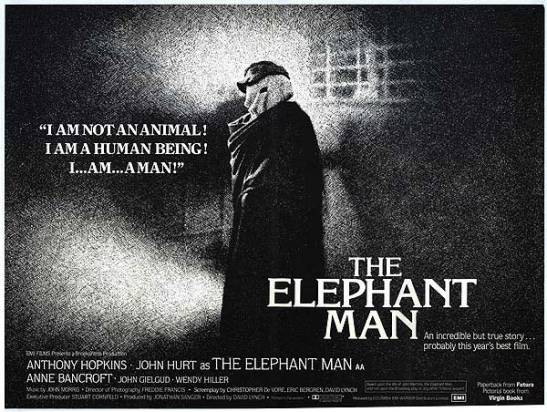
David Lynch’s sophomore film would find that there would be no sophomore slump for this talented artist. Eraserhead had dominated the midnight movie circuit during the late 1970’s and caught the attention of none other than comedic genius Mel Brooks. Yes, the director of Blazing Saddles loved Eraserhead. He immediately offered David Lynch to direct a film he had long wanted to produce about the life of John Merrick. An unlikely match between two creative geniuses, Lynch accepted and directed his first big studio film The Elephant Man. The result was better than he probably could have hoped for, it was a moderate box office hit which is especially unique since the film was shot in black and white, it received terrific notices from critics and earned eight Academy Award nominations including Best Picture, Best Director, the first of three for Lynch, and Best Actor for the late great John Hurt. It featured stellar make up, glorious cinematography, a very factory-like visual style that Lynch carried over from Eraserhead and would continue to use in his subsequent films. It also had top notch performances from its cast with some of the biggest names he would ever work with. Besides John Hurt as the title character, Lynch directed great British actors Anthony Hopkins, John Gielgud and Mel Brooks’ talented movie star wife Anne Bancroft. He showed that in the right circumstances he could deliver an award worthy film. Even though it went home empty handed on Oscar night, Lynch had proven to the world he could handle the big time heavy hitters in Hollywood. The Elephant Man is easily David Lynch’s most accessible film to mainstream audiences, however it still has many unconventional moments such as the scene where the audience first gets a glimpse of the deformed man as a nurse walks in and turns on the light, the strange dance sequence where yokels taunt the main character and the final scene where John Merrick lays his head down and the camera pans up and we see stars in the vast emptiness of space. None of those moments are conventional by any means, yet they were all powerful and stuck with the viewer long after the film ended. An early high point for Lynch as he was just finding his way as an auteur.
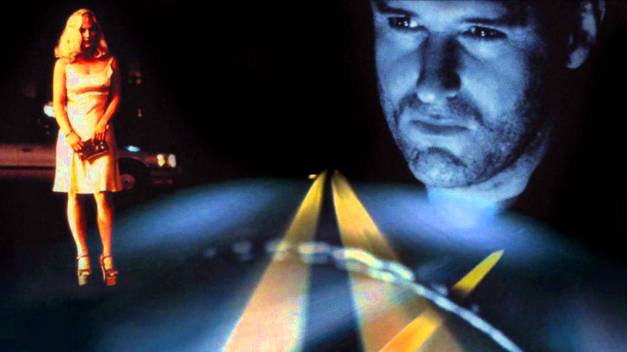
Seven years after Twin Peaks premiered and five years after Fire Walk With Me laid an egg at the box office, David Lynch was finally ready to move on from Laura Palmer and small town idiosyncrasies and found inspiration in something else. The OJ Simpson trial and it’s over saturation by the news media provoked David Lynch to return to his midnight movie roots. Lost Highway would be his most experimental and unconventional narrative since Eraserhead. Featuring Bill Pullman fresh off his biggest success as the President from Independence Day (1996) and starring Patricia Arquette in another bold and daring performance from a leading lady in a Lynch film. It also had Robert Blake as the frightening ‘Mystery Man’ and Richard Pryor in a cameo in what would be both of their final movie roles. Pryor would pass away due to complications from MS in 2005 and Blake would be arrested for the murder of his wife. Although Blake has since been acquitted, nobody has hired him since being released from prison and Lost Highway is his most recent credit on imdb. Lost Highway is a jarring picture at times and is a fun puzzle film to try and put together as actors play multiple roles and characters disappear and appear seemingly out of nowhere. The performances are powerful when they need to be and hilarious when you least expect it. The analogy of the OJ trial and American values in the 1990’s is there in a very subtle Lynchian context. Lost Highway is probably Lynch’s scariest film and the only one in his oeuvre that could be categorized as a horror movie. The movie is effective with psychological scares and moments of terror that can make you jump in your seat. It also has one of his best soundtracks with a terrific score from Angelo Badalementi as well as songs recorded just for the film by Nine Inch Nails, David Bowie, Smashing Pumpkins, Lou Reed, and Marilyn Manson. It also features the best and funniest act of road rage ever caught on film perfectly displayed by Robert Loggia. The weakest aspect of Lost Highway has nothing to do with the movie itself but the fact that its style would serve as the blueprint for Mulholland Drive four years later to much greater effect. Lost Highway remains a must see for Lynch fans and is an interesting challenge for the casual viewer to try and put the pieces together. With the Twin Peaks phenomenon and the ghost of Laura Palmer finally behind him, David Lynch found himself and his creative catharsis on Lost Highway.
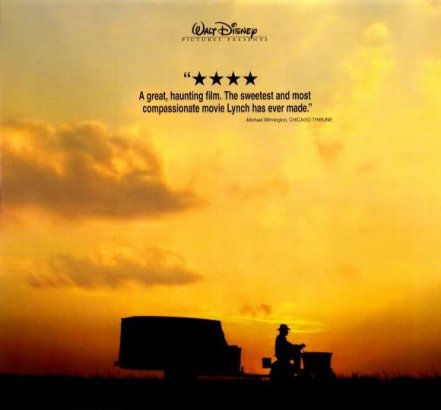
Always willing to challenge himself as an artist and seldom taking the same route twice David Lynch followed up his skewed, violent, sexual mystery Lost Highway with a G-rated Disney movie. That is right, David Lynch made a family movie for Walt Disney Pictures. But this is not just a curio or an experiment to watch once and then disregard. The Straight Story is Lynch’s most sincere, compassionate and subtle movie about the importance of family and the strong bond between brothers. Based on the incredible true story of Alvin Straight who took his John Deere lawnmower on a 200 plus mile journey across several states in the Midwest to see his brother after he found out he had a stroke. Even though it does not have the violence, profanity and sexuality that have become staples of a David Lynch film, The Straight Story feels very much like a David Lynch film. It has the same themes of a strong central character against all odds, going on a journey that ends up being a journey of self-discovery and he meets some very quirky misfit characters along the way. This movie is so subtle that a lot of people may complain that nothing happens in it for two hours, but the end is so powerful that once you reach the peak with Alvin Straight you realize that so much has happened during his voyage across America’s heartland. It is an eloquent look at American life and once again features a strong performance from its lead actor Richard Farnsworth as Alvin Straight. The Straight Story would be his final acting role and he earned a well deserved Best Actor Oscar Nomination for it. All of Lynch’s signature auteur brush strokes are available in a mild and less hyper-stylized manner. I would love to see other great filmmakers like Quentin Tarantino, Oliver Stone and Paul Thomas Anderson leave their signature R-rated comfort zones and challenge themselves to create a beautiful and artistic film that can universally entertain, educate and transport audiences as well as still feel very much like a film that belongs next to their greatest masterworks. The Straight Story is the one great David Lynch movie for people of all ages and is a film that should be cherished as his most unexpectedly powerful film.
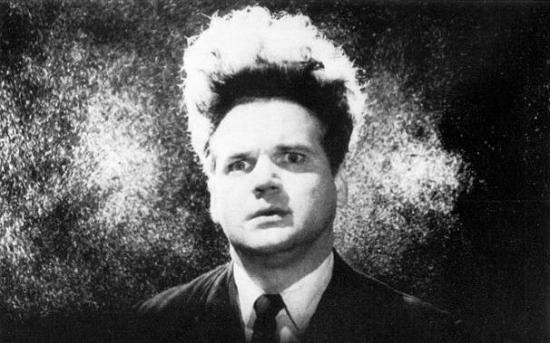
The movie that put David Lynch on the map and is still often considered his masterpiece. Eraserhead came after Lynch had found success with short films and enjoyed his time as an artist in Philadelphia. He finally had enough clout to finance his own feature length avant-garde motion picture. The result was Eraserhead which would become a late night cult phenomenon alongside The Rocky Horror Picture Show (1975) and Dawn of the Dead (1978). Although Eraserhead would be much more surreal and unorthodox than both of those midnight movies, it would emerge as a powerful film about fatherhood and mans weaknesses and fear of responsibility. Shot in grainy black and white cinematography, Eraserhead would be the debut full length film of David Lynch but it featured many of his trademarks including industrial images and sounds, rotting environments, distorted reality, head injuries, curtains, extreme use of dark and bright lighting, strobe lights, grotesque images, and the exploration of dreams. His fascination with the dark side of the American dream even though there are no clear small towns in Eraserhead is still noticeable. The audience is never entirely sure where the world of Eraserhead is taking place, they just accept it in all of its surreal mysterious beauty and ugliness. It may be the future, it may be in the past, it may be in another dimension or it may just all be in our heads, but once it gets in there, the world Lynch created in Eraserhead will stay in there. Nauseating and incomprehensible to some, an arthouse masterpiece to others, yet all who see it will agree that Eraserhead is unforgettable. It starred Jack Nance as the main character Henry Spencer who is trying to survive what appears to be an unimaginable life with a horrible girlfriend/wife who is never satisfied and always angry with him, very annoying in-laws and a deformed dinosaur looking baby with unbearable screams and hideous illnesses. His use of music is also masterfully done because “In Heaven, everything’s fine”. Lynch earned his Wizard of Weird title with his debut film and his themes and motifs have recurred in all of his subsequent nine features and television programs.
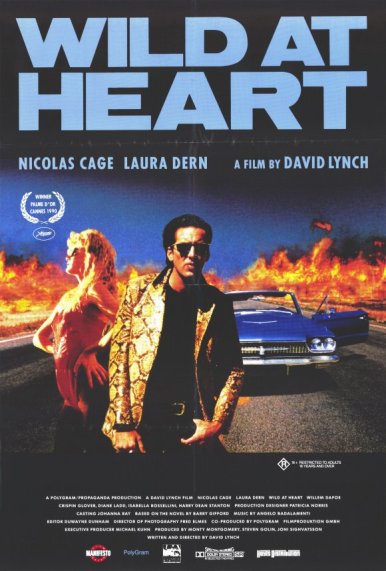
During the height of Twin Peaks’ popularity David Lynch wrote and directed his version of Bonnie and Clyde with Wild at Heart. A fiery, passionate love story of Sailor and Lula played by Nicolas Cage and Laura Dern respectively. It is his most sexually charged and graphically violent film with scenes that were clearly meant to shock and disturb audiences. In some ways Wild at Heart is my favorite of David Lynch’s films. It captures the powerful passion of being in love and emphasizes all the craziness that comes with love. Cage is terrific as the lead and even better when you know that he is actually doing all his own singing when he breaks out of a scene and starts serenading Laura Dern to Elvis. Willem Dafoe is deliciously vile as the criminal scumbag Bobby Peru and Diane Ladd was so good as the mother-in-law from hell she earned an Academy Award Nomination for Best Supporting Actress for her performance, which in retrospect should not have been that hard playing Laura Dern’s mother since she is her mother in real life. This is a wild and fun roller coaster ride of a movie that takes you to hell and back and illustrates what love can do to a person. The Wizard of Oz symbolism and parallels are heavy handed but work and enhance the surreal elements of the film. This is also his most hilarious film and should be categorized as a dark comedy above all else. The humor is sickeningly funny and you may feel bad for laughing at the shocking images on screen but Wild at Heart works and once it has you under its devilish spell you will not want to leave. The Cannes Film Festival embraced Wild at Heart giving it the coveted Palme d’Or, the equivalent of Best Picture, a huge surprise to many. US audiences were lukewarm to his hyper-violent and psycho-sexual love story, where it came and went from theaters in late August of 1990. Nicolas Cage has gone on the record stating that Wild at Heart is his favorite role of his career and there is no denying that it is unquestionably one of his finest performances. Wild at Heart was meant to be controversial and divide audiences but if you have the taste of the surreal and like being challenged by very dark humor then Wild at Heart is a love story and road trip movie that is worth taking.
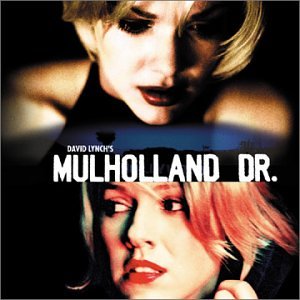
Easily the single best movie from the first decade of the twenty-first century. 2001 was a great year for movies but none stood out as much as David Lynch’s surreal exploration of dreams and deconstruction of Los Angeles and Hollywood entertainment culture than Mulholland Drive. How poetic and appropriate that Mulholland Drive began as a failed pilot for ABC. Lynch is smart enough to know they would reject it, so then went back and added a few scenes and re-edits and created his most recent masterpiece. Few films have captured my imagination as Mulholland Drive did. I had so much fun seeing this in the theater and then watching and re-watching the DVD trying to put the pieces together to solve the enigma of a movie Lynch had created. I knew it was an act of futility but like some of the greatest works of art it is open to interpretation and meant to have more than one meaning. What every viewer brings to the film it can effect them in their own personal way based on their experiences. Many movies have been made about the superficial culture of Hollywood but none are as complex and surreal as this film. Lynch really captures a darkness that exists in L.A. and it has never been shown in such a magnificently cynical light as Mulholland Drive. With its fantastic cinematography and eerie music score Mulholland Drive captures L.A. at it’s creepiest and most dreamlike, but in an instant that dream can turn into a nightmare. It would continue with the style Lynch set forth in Lost Highway and would culminate in his following picture Inland Empire five years later. These three movies serve as his Los Angeles trilogy and dark satire on the entertainment industry. Mulholland Drive is the most powerful and thought provoking film of the three. It cuts deep with its social commentary but also with its rich symbolism and riddles on screen. Actors switch characters as we have seen in other Lynch films but none as masterfully successful as in Mulholland Drive. It also features the best build up and release of sexual tension in any movie. This is an obvious masterwork by a master filmmaker if there ever was one. Lynch earned Best Director from the Cannes Film Festival and his third and thus far final Oscar nomination for Best Director with Mulholland Drive. The fact that Naomi Watts and Laura Elena Harring were both ignored in the Best Actress categories is beyond ludicrous. This was the film that put Naomi Watts on the map and allowed her to get the lead role in The Ring the following year which made her a star. Mulholland Drive is a brilliant puzzle of a movie and metaphor for the two-faced and vain characteristics of Hollywood, a place Lynch seems to love and hate equally.
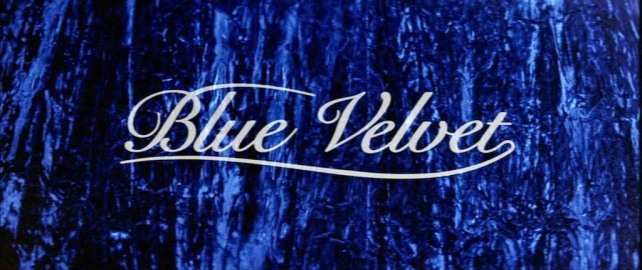
The film where David Lynch really flexed his filmmaking muscles and developed his style was in Blue Velvet. Arguably the best movie to come from the 1980’s and it is still the best movie of Lynch’s career. His first official exploration of small town America and dissection of American values would become synonymous with all the stereotypes and cliches of a David Lynch film. But it is also his most beautifully eloquent and deeply personal film about the dark side of the American dream and the violence and darkness that we are all a part of as human beings. His protagonists played by Kyle MacLachlan and Laura Dern as naive young lovers trying to solve a crime that involves a gorgeous and mysterious nightclub singer played by Isabella Rossellini and puts those three characters through hell, only to come out at the end with a message that even though our world has many dark corners and is filled with sick people and violence, it is still a beautiful place and one worth fighting and living for. So many iconic images from Blue Velvet they could be freeze framed and hung on a museum wall. The blue sky and white picket fences with red roses, the bugs crawling underneath the beautiful bed of green grass, the conversation in front of the Church’s stain glass window. And how did I make it this far without mentioning Dennis Hopper in the best role of his career as Frank Booth. On one hand Hopper plays Frank Booth as absolute evil and the most vulgar and sadistic human being we have ever seen, but on the other hand, he is simply a sad man in love and does not know how to express or control his love so it is released in anger and fits of violent rage. Ultimately, that is what Blue Velvet is, an unconventional love story. A romance between characters that are discovering themselves and coming of age on their journey as they try to help the police solve a mystery, and a love story between a sad and confused man who has all the wrong ideas about how to express his feelings to the woman he loves. Blue Velvet is as beautiful and awe-inspiring as it is shocking and years from now will continue to be celebrated and admired as great films from Hitchcock, Kubrick and Scorsese. Film is art and Lynch’s Blue Velvet will go down in history with some of the finest works of Picasso, Rembrandt and Van Gogh.
And here are Siskel and Ebert debating Blue Velvet in one of their most famous on air arguments of any movie they reviewed. One of them loved it, one of them hated it, but that is the nature of the film and what makes David Lynch the artist he is. The comparison to Psycho (1960) is dead on.
1 Comment »